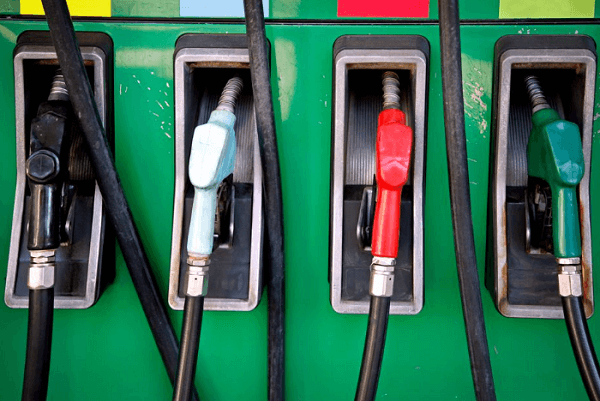Why Do Luxury Cars Need Premium Gas – Luxury cars have always been synonymous with opulence, status, and cutting-edge technology. From the sleek lines of a Bentley to the roaring engines of a Lamborghini, these automobiles exude a unique charm that captivates car enthusiasts worldwide.
But have you ever wondered why these high-end machines demand premium gasoline to power their impressive engines?
In this article, we’ll delve into the fascinating world of luxury cars and explore the reasons behind their insatiable thirst for premium gas.
So, fasten your seatbelts and join us on this journey to uncover the secrets of the automotive elite.
What is Premium Gas?
Before we dive into the specifics of luxury cars, let’s clarify what premium gasoline is. Premium gas, often referred to as high-octane gasoline, is a fuel grade that boasts a higher octane rating compared to regular unleaded gasoline.
This higher octane level provides several advantages, including enhanced engine performance and protection against knocking and pinging.
Octane rating measures a fuel’s resistance to pre-ignition and knocking in high-performance engines.
Now, let’s address the million-dollar question: Why Do Luxury Cars Need Premium Gas?
Why Do Luxury Cars Need Premium Gas?
Luxury cars, with their sleek designs and powerful engines, have long been the epitome of automotive elegance. Yet, beneath the surface of their opulence lies a lesser-known requirement: premium gasoline.
Luxury cars, whether foreign or domestic, often demand premium gas to unleash their full potential. But why is this the case?
Let’s break it down:

1. Engine Performance and Power
Luxury cars are not just about aesthetics; they are engineered for top-tier performance. These vehicles are equipped with high-performance engines designed to deliver exhilarating driving experiences.
Premium gasoline plays a crucial role in optimizing engine performance.
Its higher octane rating ensures efficient and even combustion within the engine cylinders, thus maximizing power output.
In essence, premium gas is the lifeblood that keeps these high-performance engines running at their best. It’s the key to unlocking the full potential of your luxury car’s engine.
2. Knock Prevention
Engine knocking, a phenomenon where the air-fuel mixture ignites prematurely, can lead to engine damage and reduced performance.
Luxury cars, especially those with finely tuned high-performance engines, are more susceptible to knocking when using regular unleaded gasoline.
Premium gas’s higher octane rating acts as a shield against knocking, ensuring smooth and consistent engine operation.
Read Also: Why Are Luxury Cars Unreliable?
3. Enhanced Fuel Efficiency
Fuel efficiency is a concern for luxury car owners, even with their focus on performance. Surprisingly, using premium gas can actually improve fuel efficiency in these high-end vehicles.
The cleaner burn and reduced knocking lead to better combustion, resulting in more efficient fuel usage.
While the difference in fuel economy may not be dramatic, every bit of efficiency counts when you’re behind the wheel of a luxury car.
4. Engine Longevity
Luxury car owners expect their vehicles to last for years, and using premium gasoline can contribute to engine longevity.
By eliminating knocking and promoting cleaner combustion, premium gas reduces wear and tear on engine components, resulting in a longer-lasting and more reliable vehicle.
5. Resale Value
Luxury cars tend to retain their value better than mainstream vehicles. Using premium gas as recommended by the manufacturer can help maintain the resale value of these high-end automobiles.
Prospective buyers are more inclined to invest in a well-maintained luxury car that has received the recommended fuel.
Read Also: Why Are Luxury Cars So Expensive?
Do All Luxury Cars Require Premium Gas?
While the majority of luxury cars benefit from premium gasoline, there are exceptions. Some luxury car manufacturers may recommend, rather than require, premium gas.

It’s crucial to consult your owner’s manual or contact your car’s manufacturer to determine the specific fuel requirements or recommendations for your vehicle.
The Perils of Using Regular Gas in Luxury Cars
The temptation to save money by using regular unleaded gasoline in a luxury car is understandable, but it can have consequences.
Regular gas may cause increased engine wear and tear, knocking, and reduced performance, especially in older luxury models.
Modern cars equipped with technology to adapt to regular gas might not exhibit immediate issues, but long-term use of the wrong fuel can still lead to engine strain and decreased lifespan.
Alternating Between Regular and Premium Gas: Is It Feasible?
Some luxury car owners may contemplate alternating between regular and premium gasoline to save money. While it’s possible, there are caveats to consider.
You may notice decreased power and fuel efficiency when running on regular gas, especially in high-performance engines.
If you choose this route, be mindful of your car’s workload.
When your luxury car faces heavy-duty tasks like towing or long-distance driving, sticking to premium gas is advisable to prevent potential engine damage.
Read Also: Why Are Used Luxury Cars So Cheap?
Diesel Fuel: A Strict No for Gasoline Luxury Cars
If your luxury car has a gasoline engine, never use diesel fuel. Gasoline and diesel engines operate differently, and misusing the wrong fuel can lead to severe engine damage.
If such an error occurs, refrain from starting the engine and seek professional assistance immediately.
What happens if you put regular gas in a luxury car?
Many vehicles that boast high performance are equipped with high-compression engines, and since regular gas can become unstable when it is under pressure and high heat, it can possibly ignite.
This will result in an audible noise that is often referred to as ‘pinging.
Is premium gas a waste of money?
You should use premium gas if the owner’s manual calls for it. Otherwise, there is no sense in wasting money by putting premium gas in your vehicle’s tank if the manufacturer recommends regular gasoline.
What is the disadvantage of premium gas?
Premium fuel costs a lot more money than standard fuel. There’s no physical proof or research to show the benefits of premium fuel.
Does premium gas make your car last longer?
The Federal Trade Commission recommends using regular gasoline for most standard cars and notes that: “In most cases, using higher octane gasoline than your owner’s manual recommends offers absolutely no benefit.
It won’t make your car perform better, go faster, get better mileage, or run cleaner.”
Does premium gas last shorter?
No, premium gas does not last longer than regular gasoline in a fuel tank. A car owner might only consider the longevity of a car’s gas if the vehicle has been sitting unused for an extended period. And we mean months or years, not days or weeks.
Conclusion
The debate surrounding premium gas and luxury cars hinges on a crucial factor: adherence to the manufacturer’s recommendations. Luxury cars, renowned for their high-performance engines, often require the use of premium gas to operate optimally.
Ignoring this directive may lead to engine knocking, reduced performance, and even potential long-term damage, particularly in high-compression engines.
While the cost of premium gas can be significantly higher than that of regular gasoline, it’s a necessary investment to ensure your luxury car continues to deliver its promised performance, fuel efficiency, and longevity.
However, if your car’s owner’s manual specifies regular gas, there’s no sense in shelling out extra money for premium fuel.
In the world of luxury cars, precision engineering meets uncompromising performance, and the choice of fuel plays a pivotal role in maintaining this delicate balance.
So, when pondering the question of Why Luxury Cars Need Premium Gas? let the manufacturer’s guidance be your compass, ensuring that your luxury car remains a masterpiece of both design and function.
Related Articles:
- Why Do People Buy Luxury Cars?
- How To Get Luxury Cars for Cheap?
- How To Make Money With Luxury Cars?
- Best Family Luxury Car
- Cheapest Luxury Cars to Maintain
- Are Luxury Cars A Good Investment?
- Most Reliable Luxury Cars